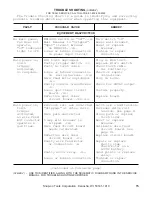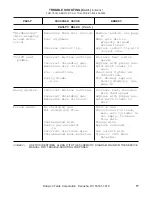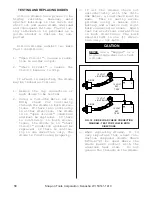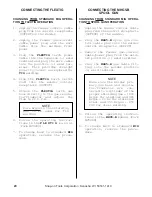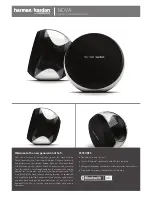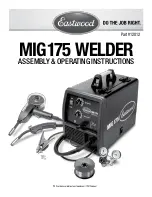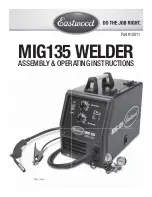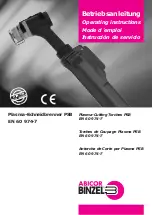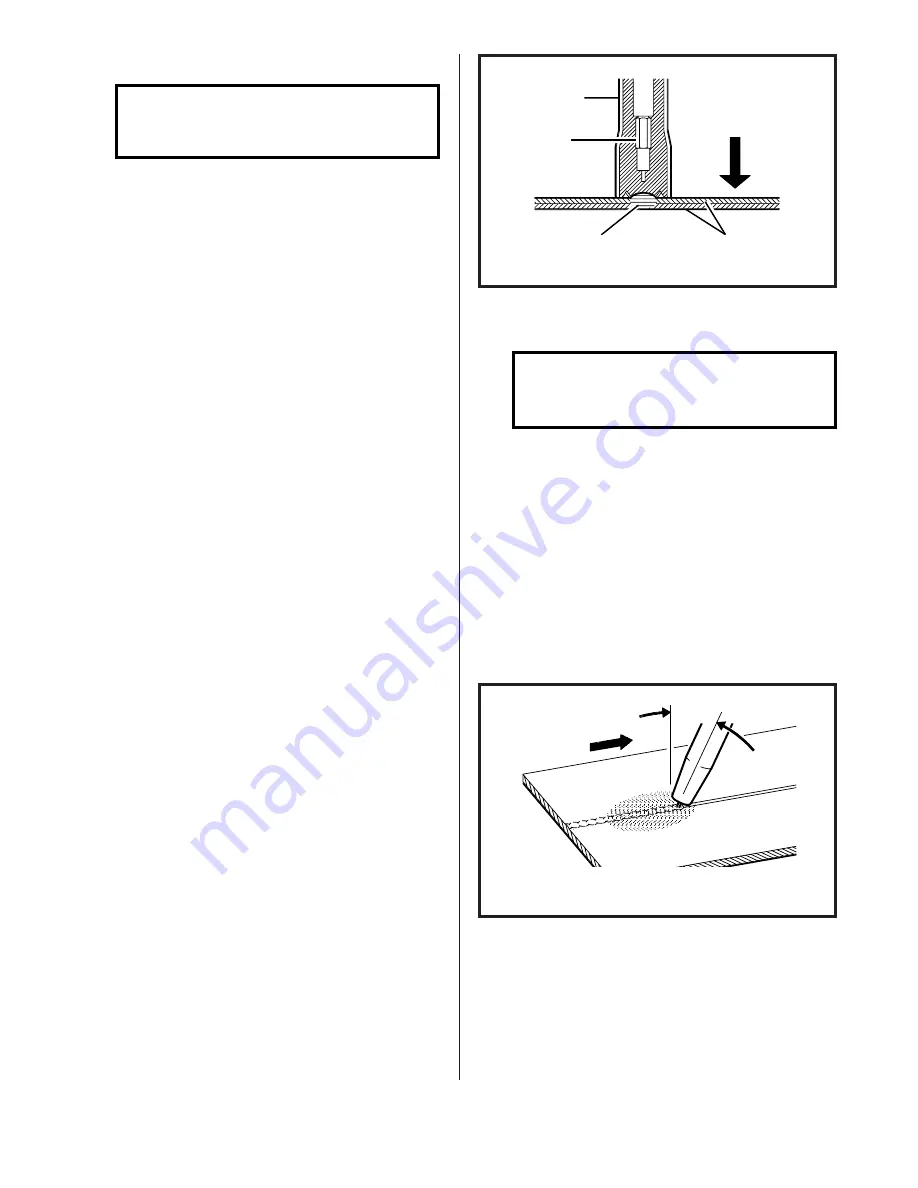
12
Snap-on Tools Corporation Kenosha, WI 53141-1410
MIG SPOT WELDING ON STEEL
NOTE
MIG Spot Welding is NOT
recommended for aluminum.
1. Trim the electrode wire so the
stickout from the contact tip
will be flush with the nozzle
face, and fit the spot nozzle in
place.
2. Set the VOLTAGE on the welder
around 20 volts, the WIRE FEED
control "8", the MODE Switch to
"SPOT", and the TIME control to
"3", then adjust the controls to
obtain a perfect weld.
3. Locate the torch on the area to
be welded and press the nozzle
firmly against the work to hold
the metals in place.
4. Guard the eyes against stray arc
flash. A weldor’s helmet is not
necessary when spot welding,
however, care must be taken to
avoid looking at the arc.
5. Activate the torch trigger to
start the weld sequence. When
the timer switches off the weld
current, release the trigger but
maintain firm contact between
the torch and work. Wait one
second for the weld puddle to
solidify, then move to the next
spot position. If the wire
"freezes" in the puddle, a quick
squeeze of the torch trigger
will melt it off.
6. To ascertain a good spot weld,
look at the back side of the
welded material. A small melt-
through of approximately 1/16
inch diameter is ideal.
SPOTWELD
WORK
PRESS NOZZLE
FIRMLY
AGAINST WORK
SPOTWELD
NOZZLE
CONTACT
TIP
FIG. 16. MIG SPOT WELDING
STITCH WELDING ON STEEL
NOTE
Stitch Welding is used for
very light material.
1. Set MODE Switch to "STITCH".
2. Adjust the TIME control to set
the time the welder is "on" and
feeding wire. The lower the
setting, the shorter the "on"
time and the faster the unit
cycles on and off.
3. Weld using "Continuous Welding"
torch position and direction of
travel.
FIG. 17. STITCH WELDING
DIRECTION
OF TRAVEL
30 DEGREES
WORK
SHIELDING GAS

















